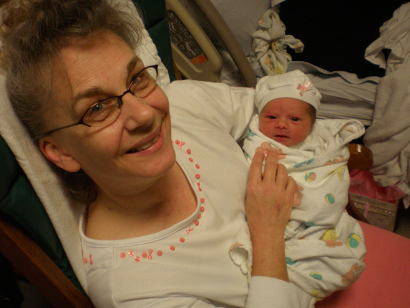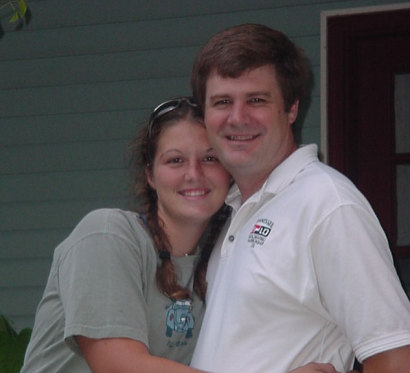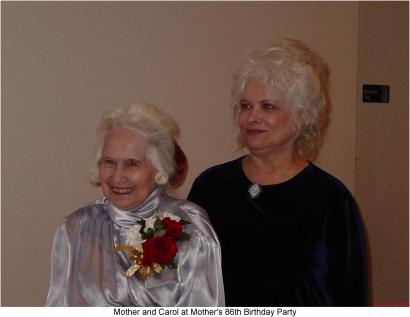Brown jacketed and wearing a Greek fisherman’s cap, Ioannes stood by his simple, white plastered house and stared curiously at the Audi which crept toward him. We rolled to a stop in the vacant lot opposite the house and climbed out of the car.
As we approached this stoop-shouldered, elderly man, he smiled, revealing a set of slipping dentures. His head jerked slightly up and back, customary of Greeks who want to size you up and hear what you have to say. He had spent all of his eighty-five years in these environs of Megalopolis, a fair-sized city in the heart of the Peloponnesus, the southern peninsular land mass of Greece, and was always glad to help lost tourists.
“Are you Ioannes Angelopoulos?” Alan asked him.
“Angelopoulos,” he repeated, somewhat surprised. He gestured with both hands toward his chest, nodding once emphatically. “Ne,” (Greek for yes).
It was my grandfather’s youngest brother. A lump rose in my throat.
Alan went on. “Allow me to introduce you to the grandson of your brother Alexander, Markos, from America.”
“Alexis’ grandson?” He turned and looked at me in disbelief. “Alexis went to America many years ago.”
Ioannes had not seen his brother since Alexis left Greece one dark, long ago night, accompanied by their eldest brother, Constantine. Ioannes was nine years old. His two older brothers were among tens of thousands of Greek immigrants who sailed into New York Harbor in 1910. Alexis never returned. He died on my fifteenth birthday, in 1963. He was sixty-nine.
We hugged, and Ioannes kissed me on each cheek. Pure white hair, thick but nicely cropped, ran out beneath his cap. No glasses obscured his deep-set eyes. His high cheekbones, well-proportioned forehead and jaws had been softened gently by age. The silver flecks of a day-old beard grew from the olive skin, now giving way to age spots, but didn’t hide the evidence of an earlier handsomeness.
“I am very honored that you have come all the way from America to visit me,” he said in a low, controlled voice. “May God bless the memory of your grandfather.”
Georgiana, Ioannes’ wife, met us as we moved toward the house. When Alan explained to her who we were, she took my hand in both of hers and rubbed it warmly. She bubbled with questions.
“How long can you stay? Are you very hungry? I must call my son Costis when he gets home. He lives next door. He will be home soon. Let me fix you something to eat and drink. Come into the house.” I felt as though I belonged.
Someone has said that the Greeks save their best hospitality for strangers, and, I would add, long-lost relatives. Georgiana led us beneath the grapevine canopy at the back of the house and into her small kitchen. When we were seated, she scurried off to the hen house for the eggs. With the help of Costis’ daughter, Georgia, she quickly spread before us a Greek countryside meal; eggs fried in olive oil, tomato salad seasoned with oregano, home grown green beans, and feta cheese which she herself had made from goats milk.
When we were ready to eat, Georgiana gave a round loaf of homemade bread to Ioannes. Slowly, almost ritualistically, he divided it into quarters, cut each quarter into thirds, and handed it out to us. There was a certain dignity about the way he did this, as though it was his very important role. Suddenly, a sense of heritage and the sacredness of the family overwhelmed me. This old gentleman was acting out a scene he had no doubt seen his father do before him. In this simple breaking of bread, the present moment was transformed into a rich, unbroken stream of culture and tradition. The greatest messages are often conveyed in the most unassuming ways.
After dinner, we sat out on the back porch for some Greek coffee, served thick and strong in demitasse cups, and each sip chased down with a drink of cold water. By that time, Costis had joined us, and when we asked directions to the village where the family had its roots, he offered to take us there.
The village of Mabria (pronounced Mah-vree—AH) is remote, even by Greek rural standards. We left the pavement and bounced over seven kilometers of stony, curving road to reach it. Its fifty or sixty structures were situated around the bell-towered Greek Orthodox church. Now inhabited by only forty families, the mainstay of its economy remained sheep and goat herding, unchanged since the days of my grandfather. As Alan maneuvered through the narrow streets, we had to stop twice to let herds of sheep and goats get by. Turning south at the center of Mabria, we drove to the foot of the hill where the old Angelopoulos home still stood.
“This is where Alexis, your grandfather, and all of his brothers were born,” Costis said. “He lived here until he was sixteen years old, and then went to America.”
We trudged up the stony incline for a closer look. It was a small, sturdy, two-storied house, with thick, stone walls and a tile roof. Despite the scars of many years, including damage caused by an earthquake in 1965, it appeared solid. Aside from a recent addition, and the disappearance of its wrought iron balconies, little had changed.
A rock-strewn field, scattered with trees and shrubs, stretched out behind the house. Costis said that when my grandfather and his brothers were school-aged children, they would play for hours on these craggy rocks. If they were playing school, the one sitting on the biggest rock would be the teacher; if they were playing marketplace, he would be the richest merchant. The field spread across the top of the hill and down toward the irregular valley below. Imposing, rose-hued mountains presided over the village. The ruins of a medieval castle, probably erected during the Ottoman-Turkish empire era, were visible from one peak.
A fig tree stood about ten yards off the corner of the house. It was late September, so the figs were ripe. Costis picked one, peeled back the skin, and handed it to me to eat. It was much sweeter and milder than I anticipated, nothing like the processed, candied figs I had eaten in America.
“This tree has stood here for a long time,” he said. “Your grandfather probably ate figs from this same tree.” I discovered later that Alexis had actually planted the tree when he was a boy. It was the sweetest fig I will ever eat.
Slowly, panoramically, I drank in the scene. Time flowed backwards. I melted into the rugged terrain of a village suspended in time.
I heard the shrieks of little olive-skinned boys with black hair and brown eyes as they ran shoeless and scuffled among the big rocks…
I heard the hollow sound of bells clanging on the necks of favorite sheep…
I smelled the aroma of freshly baked, hard-crusted loaves as it drifted from the hot kitchen…
I heard sticks crack against branches laden with olives that cascaded down on sheets spread beneath them…
I saw work horses stall as the plows caught on boulders embedded in the earth…
I also saw expressions drained of hope…
I sensed the unsettledness of lack of opportunity, lack of jobs, a dismal future…
I saw dark, thoughtful eyes stare at rose-hued mountains and wonder what the world was like that lay beyond them…
I felt silence close over the cacophony of lively children.
Mabria’s stark, pastoral setting sighed dispiritedly.
A big Italian ship was scheduled to leave the port of Patras soon and Cos and Alexis had passages booked.
Hope and dread wrestled within both parents and sons.
Tears flowed.
Long embraces were exchanged.
Lanterns swung like fireflies in the night, and Mabria faded into a vague and distant past.
Did Alexis know he would never retrace those steps?
Or did the black-bordered letter he received some twenty years later discourage him from going back? Without his mother, perhaps Mabria had lost all attraction.
Like a long lost friend, my past rose from these grounds to meet me. In touching it, I was assured of the spiritual bond, the sense and substance of belongingness, that defines my essence. I am a link in a chain, a part of a whole, one element that derives its meaning from the rest, and awed by a glorious synergism of people and culture.
Mabria taught me the sacredness of family. I grieve for millions today who have no linkage to history, not even to one generation before them. With no sense of the past, will they have a sense of the future? If they do not know where they came from, will they not care where they are going either?
The family is sacred, yes. All families are. But the overarching lesson is that life is spiritual. Materialism, secularism, living for self and pleasure, are all vapid and unfulfilling in the end.
This I received. I leave it as a legacy for you.
 Sunday, July 15, 2007 at 06:22AM
Sunday, July 15, 2007 at 06:22AM  Whitewater rafting down the New River in West Virginia looked like a fun family thing to do one summer. Armed with helmets, paddles, life preservers, and a ten-minute safety course, we put in. The guide perched on the back of the raft, barking orders and issuing warnings. The one thing he kept reminding us about was that Surprise was coming.
Whitewater rafting down the New River in West Virginia looked like a fun family thing to do one summer. Armed with helmets, paddles, life preservers, and a ten-minute safety course, we put in. The guide perched on the back of the raft, barking orders and issuing warnings. The one thing he kept reminding us about was that Surprise was coming. 



![468325_spine_curves_of[1].jpg](/picture/468325_spine_curves_of[1].jpg?pictureId=747507&asGalleryImage=true)
